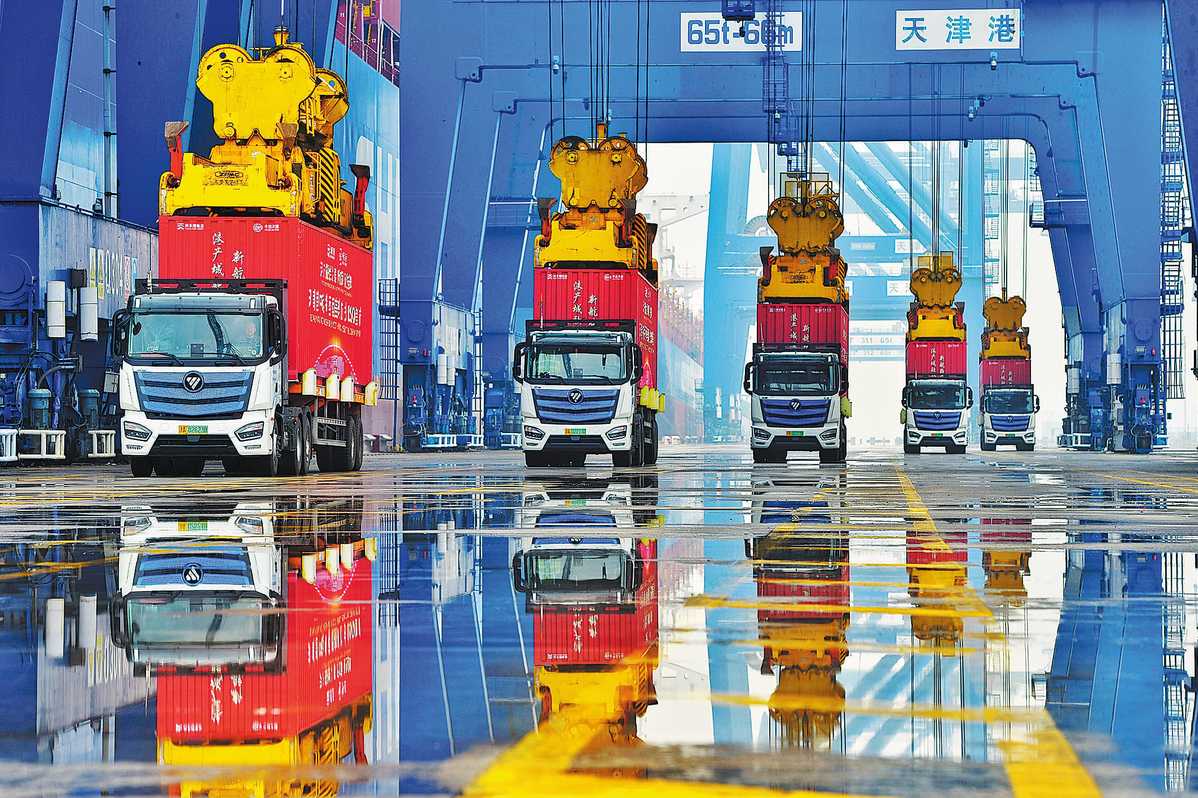Nations in eye of US tariff storm
Economies could face 'mortal blow' if Washington carries out threat, experts say


Trump's lack of interest in climate policies, Cohen said, complicates matters. "A large tariff will drive down prices for Canadian energy producers, putting pressure on governments to increase subsidies and reduce regulations," she said.
The potential tariffs also underscore Canada's reliance on the US market, a vulnerability rooted in trade agreements like the United States-Mexico-Canada Agreement.
"Canada's economy is shaped by its relationship with the US, and these agreements have made the country less self-sufficient," Cohen said. "Canada needs to think long term and shift from primarily exporting resources to producing more of what it needs domestically.
"This will also require rethinking foreign policy to prioritize Canada's interests over closely following US decisions," she said.
Mexico is also on the list of potential tariffs. The US has threatened tariffs as high as 25 percent, with conditions tied to cooperation at the border on migration and illicit drugs.
Negotiation strategy
Luis de la Calle, former undersecretary for international trade negotiations at Mexico's Ministry of Economy, described the proposed tariffs as part of a broader negotiation strategy rather than a credible long-term threat.
"The US and Mexico are too interconnected to fully decouple," he told China Daily.
"Geography and shared production systems make diversification a challenge, but they also create strong arguments for exempting Mexico from broad tariff measures," he said.
While such policies have sparked concern, de la Calle was more skeptical about their sustainability over the long term, given the extensive trade relationships that the tariffs would disrupt economically in both countries.
"Historically, energy products and highly integrated sectors like electronics and autos have been spared from tariffs due to their critical role in supply chains," he said.
De la Calle urged the country to bolster its competitiveness, viewing it as essential not only to maintain access to the US market but also to secure new trade opportunities.
"The answer to tariffs is becoming more competitive; the more competitive we are, the stronger our case for free trade and investment," he said.
Mexico's economy relies heavily on trade with the US, particularly in manufacturing and agriculture.
The potential tariffs could pressure Mexico to strengthen ties with Europe and Asia, de la Calle said.
However, he acknowledged the limits of diversification. "You can't fully diversify away from a market as large as the US," he said.
As Mexico prepares for a review of its trade agreements in 2026, de la Calle emphasized the importance of careful management in the coming months.
"The initial response to these tariff threats will set the tone for future negotiations. Mismanagement could complicate trade reviews, while a measured approach could ease tensions," he said.
Ultimately, de la Calle said he believes Mexico must double down on its long-term strategy to enhance competitiveness and build alliances.
"We need to strengthen our relationships across the Atlantic and Pacific. The more integrated we are globally, the harder it will be for the US to undermine North American cooperation," he added.
gaoyang@chinadailyusa.com


















